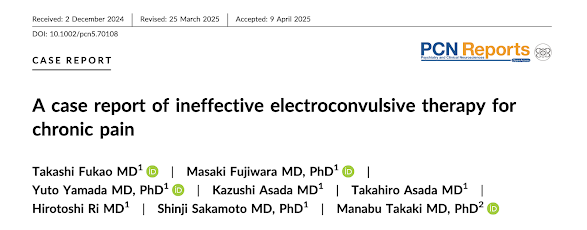Royal Australian and New Zealand College of Psychiatrists Professional Practice Guidelines for the Use of Ketamine in Psychiatric Practice: Section on Comparison With ECT

Out on PubMed, from authors Down Under, is this paper: Royal Australian and New Zealand College of Psychiatrists professional practice guidelines for the use of ketamine in psychiatric practice. Hussain S, Gale C, Sarma S, Smith J, Bayes A, Loo C. Aust N Z J Psychiatry. 2025 Apr 28:48674251333577. doi: 10.1177/00048674251333577. Online ahead of print. PMID: 40290038 The abstract is copied below: Professional practice guidelines for the use of ketamine in psychiatric practice have been developed by the Royal Australian and New Zealand College of Psychiatrists to provide guidance on the use of ketamine in clinical practice in Australia and Aotearoa New Zealand, based on scientific evidence and supplemented by expert clinical consensus. Articles and information were sourced from existing guidelines and published literature. The findings were then formulated into consensus-based recommendations and guidance by the authors. The guidelines were subjected to rigorous successive con...












